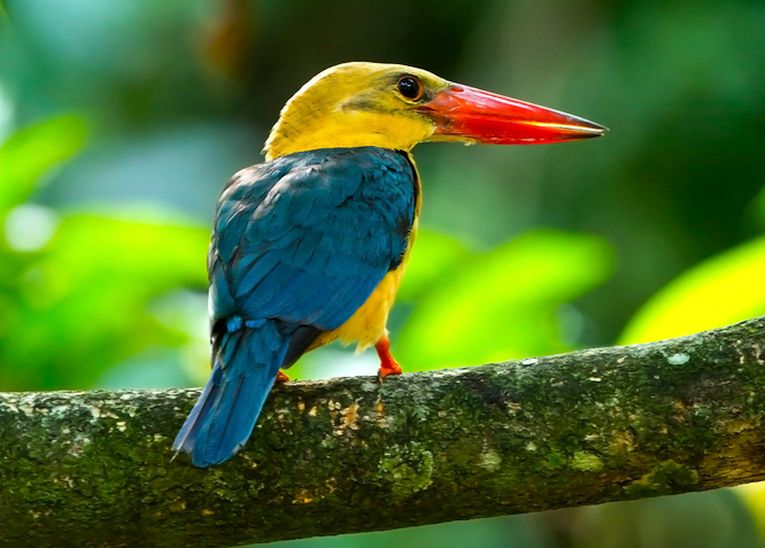Many species are in decline and becoming extinct because of one change in the tropical forest equation. Oil palm plantations have spread everywhere, with forest dependent animals and plants fleeing, but is that always the case? Riparian vegetation is that which grows along watercourses. It therefore forms links with other communities at greater distances than would otherwise be possible for most of its resident and visiting fauna and flora.
The interest is particularly evident when important groups are preserved in forest buffer strips. Leaf litter ants in NE Sabah, in Malaysian Borneo, influence the local nutrient cycling, their predators, distribution, all of the plants with which thy associate and even the soil structure. The richness of the ant communities contributes to that soil richness while their scavenging activity related to how complex the plant communities were and to many other organisms, myrmecophilous or not !
The low biodiversity of oil palm plantations goes without saying. Both logged forest and riparian reserves had more richness of species, with low scavenging rates, as measured by the authors’ baited traps. They were C. L. Gray, O. T. Lewis, A. Y. C. Chung and T. M. Fayle of the Universities of Oxford, Sussex, South Bohemia and London (Imperial) with the Sabah Forest Research Centre also represented. Explaining the low ant biodiversity of oil palm plantations proved difficult, but this paper was most useful in pointing out how some of the terrible disadvantages of oil palm plantations can be mitigated, at least to the extent of invertebrate survival issues..
The paper is published in the Journal of Applied Ecology as Riparian reserves within oil palm plantations conserve logged forest leaf litter ant communities and maintain associated scavenging rates.
Among the many problems associated with these oil palm plantations, the Indonesian tropical peatland areas are disappearing fast. The carbon contained in these rich swamps, as well as the animal species living in the lowland forest growing on it, gives rise to international concern. As these researches show how we can fight back against the vast oil- palm empire, perhaps it is time there was a real moratorium on creating any more biodiversity deserts.
Study is desperately needed on how to cope with these oil palm areas, and encourage some regrowth of native species into the riparian, reserve or whatever zones can be retained. The orang-utan, the Sumatran tiger and the elephant have no space left, but literally thousands of other natives need to find a home among these awful reminders of human greed.










